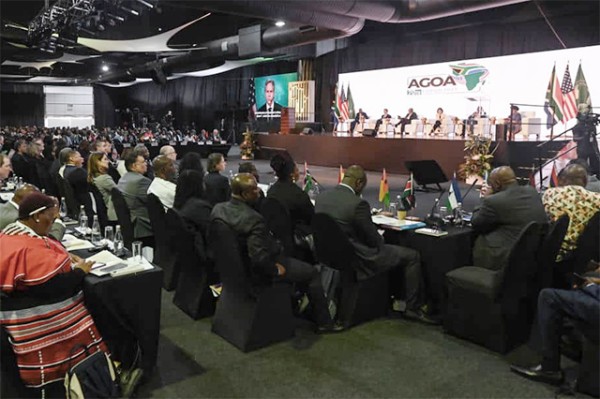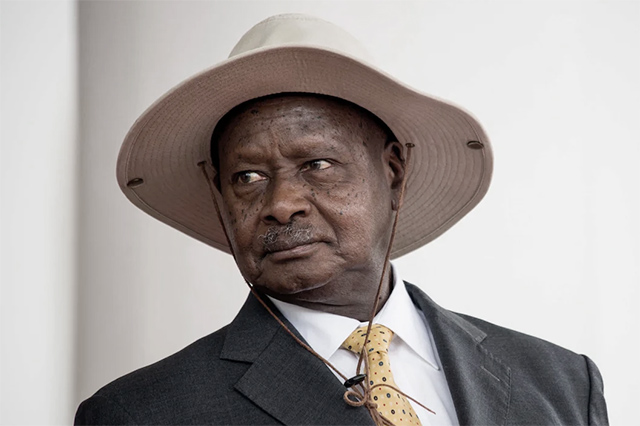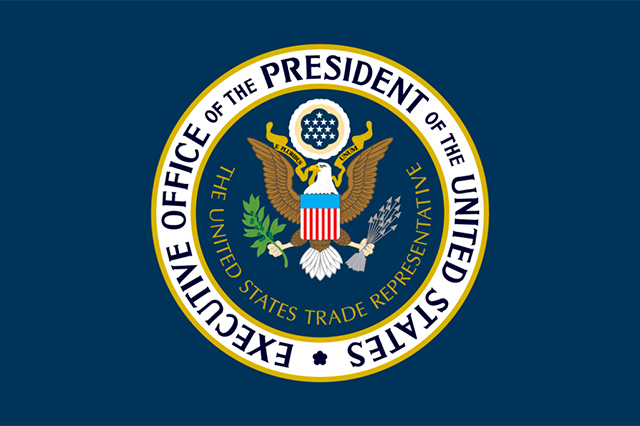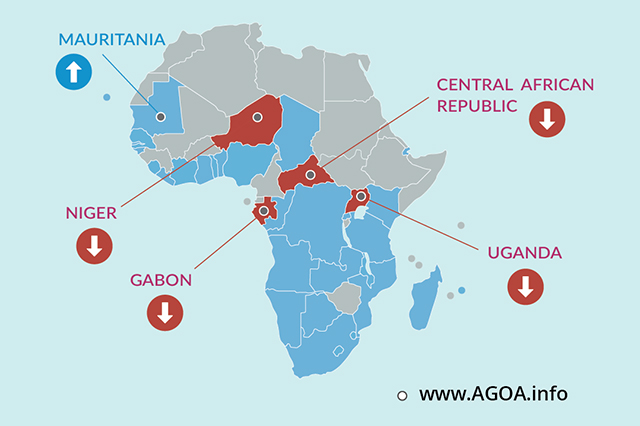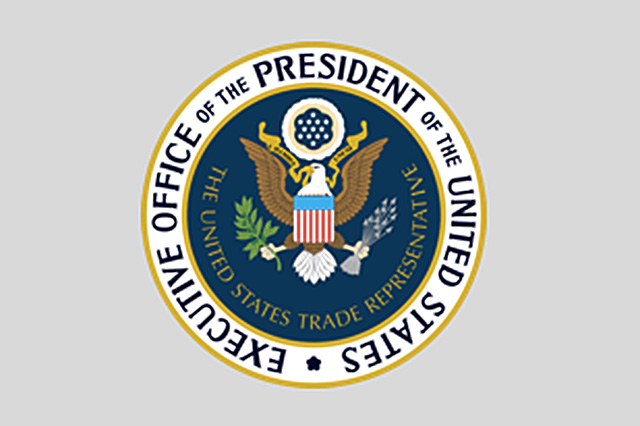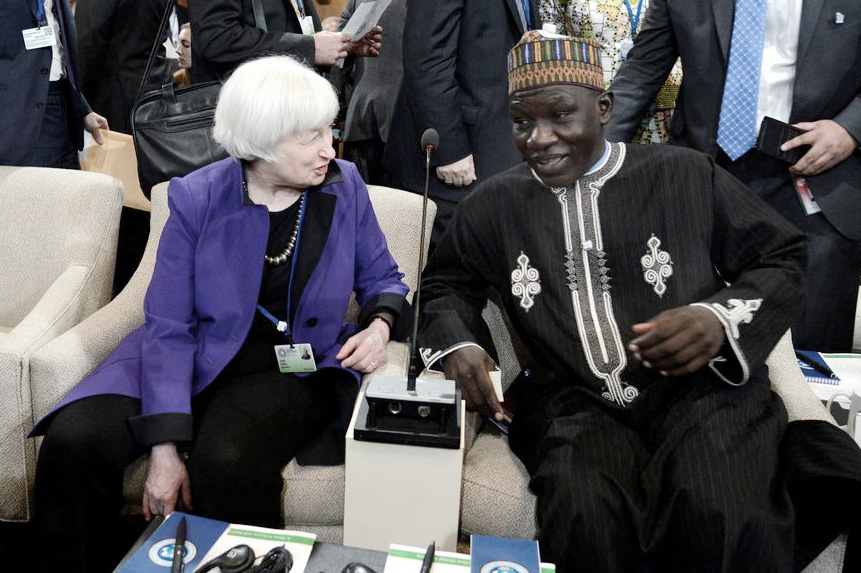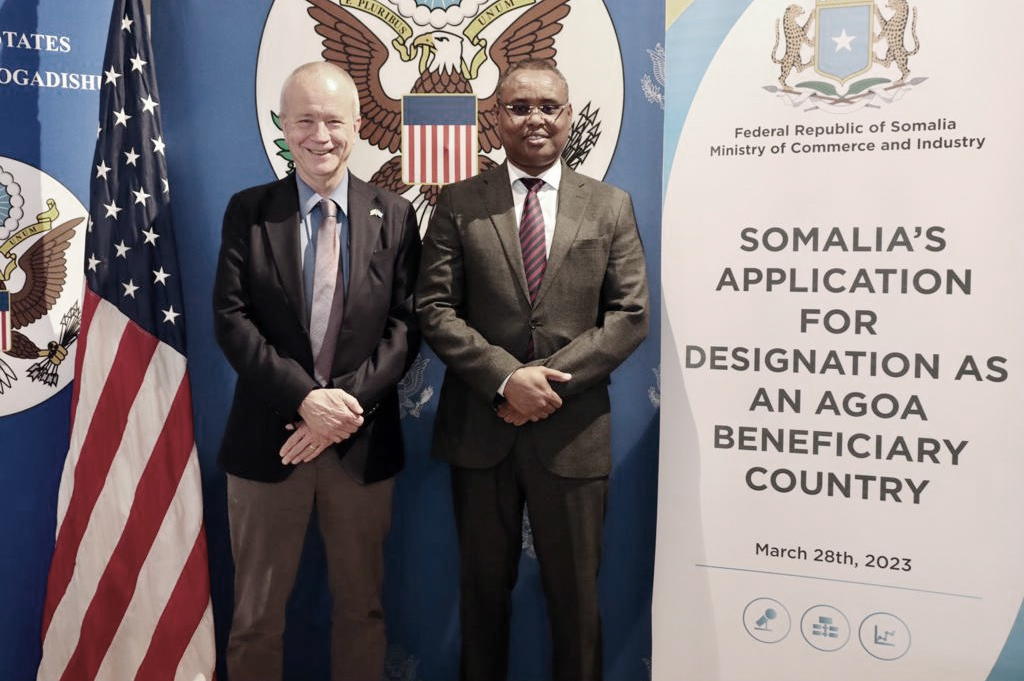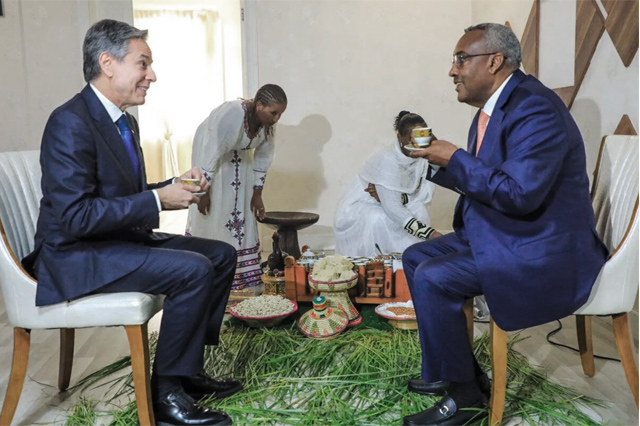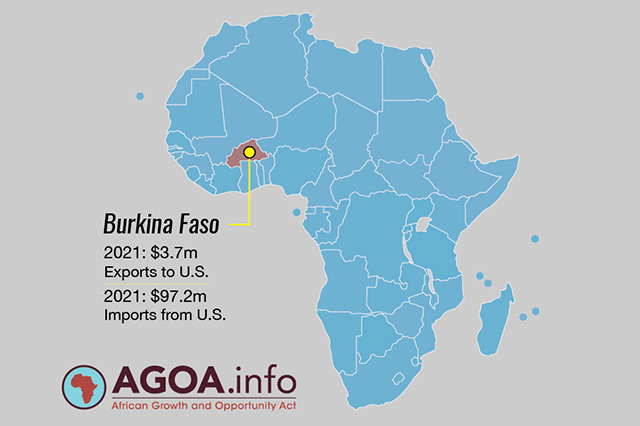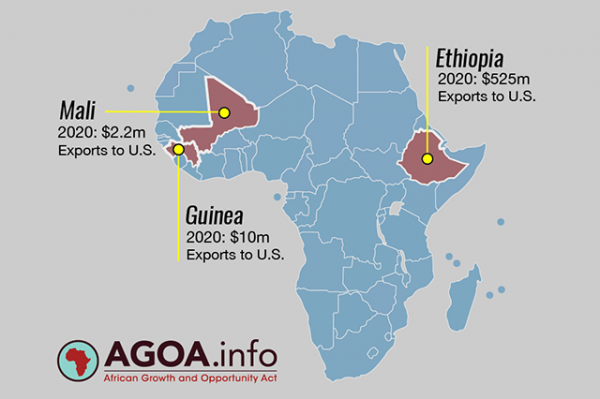AGOA eligibility update: What it could mean for US-Africa relations amid global power shifts
The United States’ recent modifications to the African Growth and Opportunity Act (AGOA) signal a significant shift in its trade relations with Africa, intertwined with broader geopolitical implications and the emerging contest for influence on the continent. Experts weigh in. [AGOA.info note: The 'modifications' relate to the list of AGOA beneficiaries, with four countries losing their AGOA beneficiary status, and one re-gaining, effective 1 January 2024. This forms part of the annual eligibility review process which has been in place since 2000, with several countries having in the past lost - and sometimes regained - their AGOA beneficiary status.]
The United States has acted on its commitment to adjust the African Growth and Opportunity Act (AGOA) due to governance and human rights concerns, resulting in the suspension of several countries and the reinstatement of Mauritania as a beneficiary after a 16-year absence.
Uganda, the Central African Republic, Gabon, and Niger have all been expelled from AGOA, effective January 1, 2024, losing access to the preferential trade benefits offered by the Act.
“I am taking this step because I have determined that the Central African Republic, Gabon, Niger, and Uganda do not meet the eligibility requirements of section 104 of the AGOA,” stated US President Joe Biden in a letter to the Speaker of the House, marking a significant policy shift last year.
Since its establishment in 2000, AGOA has been a critical element of US-Africa trade relations, enhancing market access for qualifying African countries and fostering substantial economic ties between the United States and sub-Saharan Africa. This trade program has not only facilitated African exports to the US but has also represented a deeper engagement between the two regions in both economic and political spheres.
Independent risk and political analyst Marisa Lourenço recognizes the multifaceted nature of these expulsions, reflecting the United States’ application of soft power in Africa.
“Politically, it is a way for the US to remain close to African governments, to sway key policy decisions, particularly around foreign policy objectives and investment opportunities for US firms,” says Lourenço to FORBES AFRICA. “This is done under the guise of promoting tenets of liberal Western democracy but really is about the balance of power on the continent between the US and other major powers, notably China.”
AGOA Changes: The Economic Implications
The adjustments to AGOA’s membership carry significant economic implications for the affected countries, according to Dawie Roodt, economist and Executive Chairman of Efficient Impacts.
Speaking with FORBES AFRICA, Roodt explains, “For countries like Uganda, the suspension from AGOA could mean a substantial blow to their economies, particularly in sectors that heavily relied on export to the US.” This move is seen as a notable rebuke by the United States.
However, Roodt contrasts this with the symbolic implications for other countries removed from the alliance, such as the Central African Republic and Gabon. “These countries do not have a significant export footprint in the US market, so the direct economic impact might be more symbolic than substantial.”
Mauritania’s return to AGOA could be economically significant, considering both its longstanding absence and its near monopolistic trade reliance on China, with almost half of the country’s exports being purchased by China. “Mauritania’s return to AGOA is likely to boost its exports to the US, particularly in sectors where it has competitive advantages,” says Roodt.
The economic implications are inextricably linked with political consequences and broader geopolitical shifts, as Africa becomes a renewed frontier. Economist Daniel Silke, Director of the Political Futures Consultancy, tells FORBES AFRICA, “We are witnessing a growing polarization in the global economic and political landscape, with countries increasingly having to navigate complex trade and diplomatic terrains.”
Silke raises the question, supported by Roodt’s insights: “Can BRICS membership evolve to offer similar benefits to what AGOA offers, or will these countries find themselves caught between competing global powers?”
New Strategic Partnerships
Lourenço, Silke, and Roodt agree that the AGOA realignment marks a new stage in a broader, longstanding competition between the United States and China over strategic infrastructure and resources—a new ‘Scramble for Africa.’
“We are witnessing a new era in Africa’s international relations, where US and Chinese spheres of influence are clearly demarcated,” Roodt observes, noting that the competition is about more than economic dominance; it also encompasses political ideology and strategic positioning.
Roodt adds, “The current geopolitical changes in Africa reflect a complex interplay of economic interests and political alliances. The reorientation of these African nations towards powers like China and Russia is a direct consequence of the changing US policy,” highlighting Africa’s strategic importance in the global arena and the dynamic nature of 21st-century international relations.
The future relationship between the United States, Africa, and China will largely depend on the response of African member states; engaging in preferential trade with the United States along a strict liberal ideological lens or with a less restrictive China.
The Future of AGOA and US-Africa Relations
“The recent suspensions and reinstatements within AGOA may set a precedent for how the US approaches trade relations with African nations, potentially leading to more stringent criteria based on governance and human rights,” Silke asserts. He suggests that this could lead to further reevaluation of AGOA’s structure and objectives in the future.
“This could result in a recalibration of diplomatic ties, with African nations weighing the benefits of AGOA against the need to maintain sovereignty over their domestic policies.”
Roodt cautions that the effects might not be immediately visible. “The realignment of trade and diplomatic relations is a complex and gradual process. While the impact of AGOA changes is significant, it will unfold over time.”
This shift reflects a world where power is increasingly distributed among various global players. The response of the affected African countries, pivoting towards nations like China and Russia, underlines the evolving landscape of international relations.
These countries are diversifying their alliances, indicating a complex, interconnected global scenario. The growing influence of the BRICS nations in Africa, especially following these AGOA adjustments, signifies a shift towards a multipolar global structure.
Emerging global powers are playing a more pronounced role, and African nations are strategically positioning themselves in the international arena. The changes within AGOA represent a microcosm of larger shifts in global trade and diplomacy, with African countries increasingly asserting their agency.
This new era is characterized by a dynamic interplay of economic, political, and strategic factors, where African nations are key players in shaping the future of international relations.
Reflecting on these developments, Silke offers a perspective that encapsulates this global shift: “The evolving dynamics within AGOA and the broader international landscape are reflective of a world where influence is no longer the preserve of traditional powers. African nations are now at the forefront, navigating a path through competing global interests, and in doing so, they are redefining the rules of international engagement.”


